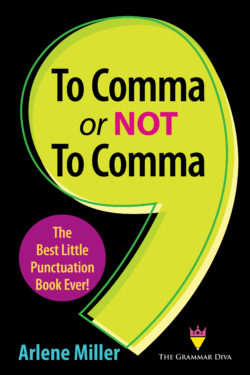. . . Does anybody really care?
How long a minute is, depends on which side of the bathroom door you’re on. ~Zall’s Second Law
Time: abstract noun – 1. indefinite, unlimited duration in which things are considered as happening in the past, present, or future; every moment there has ever been or ever will be. – Webster
As abstract a notion as time is, we do talk about it (a lot) and write about it. In fact, it is the most common noun used in English language conversation. So let’s talk about three time issues we run across in speaking and writing about time
1. This one is pretty easy. We use a.m. and p.m. to denote day and night. It isn’t very difficult to figure out until we get to 12 noon and 12 midnight. Most of us have it figured out, but it can be a little confusing at first. Night would seem to be p.m., but it isn’t. Apparently 12 a.m. begins the morning. And 12 p.m. ends the morning and begins the afternoon. One thing to note when you write (or speak). Saying 8 a.m. in the morning is redundant. Say either 8 a.m. OR 8 in the morning.
2. It is Monday. The teacher tells the class that they are going to have a test next Thursday. Which Thursday is next Thursday? Is it the same as this Thursday or is it the one after that? “Next Thursday” is ambiguous. (Same with next Monday, next Tuesday . . . you get the picture.) It is best to say this coming Thursday . . . or a week from this coming Thursday if that is what you mean.
Time is making fools of us again. ~J.K. Rowling
3. How often does a biweekly magazine come out? How about a semiweekly magazine? What about a bimonthly magazine? Or a semimonthly magazine? This is a confusing one. Let’s look at the two prefixes: bi- and semi-. Bi- means two. Semi- means half. A biweekly magazine comes out every two weeks. A semiweekly magazine comes out every half week, or twice a week. Are they always used correctly? No. Usually, it seems that biweekly is used for both every other week and twice a week. Likewise, bimonthly means every two months. Semimonthly means twice a month (or biweekly, but let’s not go there!). And, once again, bimonthly is often used to mean either twice a month or every other month. It is best to avoid the ambiguity and just say every two weeks or every other week or every other month or twice a month.
The Future is something which everyone reaches at the rate of sixty minutes an hour, whatever he does, whoever he is. ~C.S. Lewis
—————————————————————————————
Grammar Diva News
Local folks – I will be at the Sonoma County Fair with my books on Saturday, August 4; Sunday, August 5; and Friday, August 10. Come see me and other fabulous Redwood Writers in the Kraft Building from 10:30 to 5:30. Sonoma County Fairgrounds.
We beat the date! To Comma or Not to Comma will now be available on Kindle on August 6. You can still preorder it now for delivery on August 6. The print book will be out sometime in August, as will be e-book for other readers. Take a look at some of the great pre-release reviews:
“An incredible book on punctuation. A great resource for any writer attempting to guide their reader with the proper road signs (punctuation). Loved it!” – Jonas Saul, author of the Sarah Roberts Series
“Arlene Miller’s book To Comma or Not to Comma provides us with an easy-to- read, sometimes humorous, and very valuable handbook for those pesky grammatical and punctuation questions that pop up when writing. Although I’m generally pretty good at navigating the rules, there were many places in reading the book that I was surprised, or grateful, to understand the rule or the reasoning behind it—or I learned something completely new. Thank you, Arlene, for “comma-ing” to our rescue!” – Becky Parker Geist, Owner of Pro Audio Voices (audiobook production), President of Bay Area Independent Publishers Assn
“Arlene Miller’s entertaining and educational book To Comma or Not to Comma will make you your neighborhood’s (and possibly, your entire town’s) Comma Expert. A must for a literate person’s bookshelf!” – Linda Jay, book editor and public relations writer
“There’s no need to be scared anymore about punctuation. In this short book, Arlene Miller tells you what you need to know and makes it easy.” – Andy Ross, literary agent
“From periods and exclamation marks to en dashes and interrobangs, this book explains it all with wit and precision.” – Evelyn Elwell Uyemura, Professor, Humanities Division, El Camino Community College and author of Pronunciation Celebration
“As a writer of historical fiction, I sometimes lose track of the fundamentals of the English language. With English usage constantly changing, it has been essential to have one or more of Arlene Miller’s books on grammar in my arsenal of reference books. To Comma or Not to Comma? The Best Little Punctuation Book Ever! will not disappoint. It is written with precision and humor and will always have a place on my bookshelf. They don’t call Arlene Miller The Grammar Diva for nothing!” – Marilyn Campbell, author of Trains to Concordia and A Train to Nowhere
“An invaluable book for writers at any stage in their careers. It is a thorough and detailed guide about punctuation, done in a clear, concise and fun way. This book will help us write better books, and also blogs, articles, letter, emails and any written communication.” – Brian Jud, author of 14 books (including How to Make Real Money Selling Books), and the Executive Director of the Association of Publishers for Special Sales
“I learned so much from To Comma or Not To Comma. There were rules I THOUGHT I knew, but Arlene showed me that I was doing it all wrong. I was completely messing up elliptical phrases and question marks with quote marks. Thanks to Arlene, I have a new tool to share with my writer community. A great resource.” – Amy Collins, New Shelves Books




Thanks for the excellent article
You are very welcome!
As a book editor, my not-so-favorite use of “would” when indicating time brings up the subject of time. Often that word is unnecessary and saps the power of the verb. Consider the difference between: My mother would always bake pies on Saturday. AND My mother always baked pies on Saturday. The later brings the action current, whether it’s a memory or not.
That is a really good point. There is definitely a shade of difference between them. I like them both. The latter brings the action current, but the former gives a feeling of nostalgia, which I also like.
But just to confuse things further we have;
Biennial; every two year
Biannual; twice a year
Yup. Now that is confusing…Might be clearer if we used semiannual to mean twice a year!
“A biweekly magazine comes out every two months. A semiweekly magazine comes out every half month, or twice a month” . I’m confused here.
Sorry. My fault. It is now fixed. A biweekly magazine comes out every two weeks. A semiweekly magazine comes out two times a week.
“A biweekly magazine comes out every two months. “? I think you meant every two weeks.
Ooooops! Someone needs a proofreader…thank you. All fixed, including the sentence after that one. Biweekly is every other week; semiweekly is twice a week.
Hi Arlene, I think there is an error in your text. You write “A biweekly magazine comes out every two months”. And further up you write “Likewise, bimonthly means every two months”. In the first one, it should read ‘weeks’, right?
Yup. Thanks so much. All fixed.
I’m always loving the clarity. This was a good one, Arlene.
Thank you!
Thanks!!!! And the mistakes are now fixed. Sorry bout that.
When if ever should we say “o’clock”? 8 AM o’clock is redundant. 8 o’clock in the morning is not. How about simply 8 AM?
Good question. “o’clock almost always seems unnecessary. It definitely is in speech, but I guess you could add it to writing – eight o’clock. But not with a.m. or p.m., and you don’t even need it with in the morning. “Eight in the morning” is good. Eight o’clock in the morning is OK. Eight in the morning, also good.
re How long a minute is, depends on which side of the bathroom door you’re on. ~Zall’s Second Law
Is that comma incorrect and unnecessary?
(I know, it’s a quotation, but I’d appreciate clarification.
I think that is one of those comma shades of gray. The sentence is an unusual form: there are two verbs in a row, one belonging to a group of words, and one the verb of the sentence. I think it is clearer with the comma.